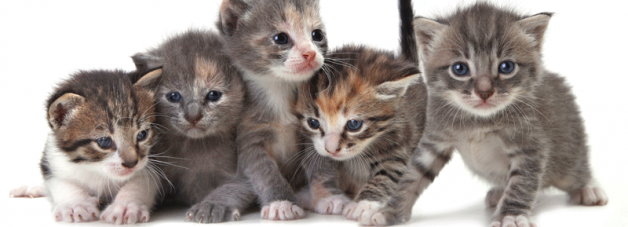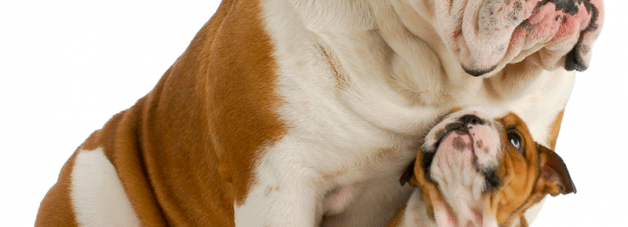During July we are offering 20% off
our regular desexing prices.
There are many benefits to be gained by desexing your pet but what can you expect on the day of the procedure and after surgery?
The night before surgery your pet can have dinner as usual. However, food must not be left out overnight for cats and dogs and they will need to skip breakfast. We will offer them afternoon tea once they have recovered! It is okay to leave water out overnight for your pet and important that rabbits and guinea pigs are not fasted at all.
After your pet is admitted to our clinic in the morning, they will be checked over and made comfortable in our separate dog and cat wards. After their desexing procedure they will be recovered under continuous supervision by the nursing team. Once they are alert enough to be offered a snack we will call you to organise a time for discharge later in the afternoon.
It is highly recommended that most pets wear an Elizabethan collar (cone) for eight days after their surgery. We use dissolvable stitches that cannot be chewed at and do not need to be removed, but it is still important that your pet doesn’t lick their surgery site. This is to prevent infection and the wound opening up. Pets quickly get used to these cones and are able to eat, drink and sleep normally with them on. Rabbits and guinea pigs do not need to wear cones.
Your pet may be a little sleepy the night after their surgery but should be bright and eating normally the next day. It is important to rest your pet for the week after surgery to allow the wound to heal quickly. We will dispense pain relief medication for you to give to your pet once a day during this time.
We typically wish to see your pet two days after surgery to check all is going well and then again at eight days post surgery to give them the all clear, get that cone off and get them back to normal activities.
Call the clinic on 5278 5400 to book your pet in for desexing during July.
We are offering a MASSIVE 20% OFF the regular price of desexing during July.
Here are 10 reasons why YOU should desex YOUR pet:
1) Male cats that have not been desexed mark their territory – your house – by spraying urine on walls and furnishings.
2) They roam greater than 5km in search of female cats, crossing busy roads and often getting hit by cars. In an attempt to defend their “territory”, male cats will aggressively attack other cats and even dogs, often ending up with wounds and abscesses themselves.
3) Bites from other cats spread the feline AIDs virus. 25% of stray cats in this area carry this virus.
4) Female cats that have not been desexed come into heat several times a year. They become more vocal, demandingly affectionate and attempt to wander off whereby they are extremely good at getting pregnant.
5) Female dogs that have not been desexed usually come into heat twice a year. This is accompanied by approximately 1 week of vaginal bleeding and they need to be separated from male dogs for 3 weeks.
6) Mammary tumors are very common in female dogs and cats that have not been desexed. In dogs, 50% of these are malignant (spread to other parts of body). In cats an alarming 80% are malignant. Mammary tumors are hormonally influenced and spaying your pet young almost eliminates their occurrence.
7) Testicular cancers occur commonly in male dogs. Ovarian cancer occurs less frequently in female dogs and cats but 50% are malignant. Vaginal and vulvar tumors are also hormonally influenced.
8) Male dogs that have not been desexed always develop enlarged prostate glands with age. This can lead to trouble urinating, constipation and perineal hernias – ruptures of the muscle around the anus.
9) Older female dogs that have not been desexed commonly get a condition known as pyometra or “pus filled uterus”. This is life-threatening condition and requires emergency surgery.
10) Male dogs that have not been desexed are more likely to display aggression towards other dogs and more likely to challenge the “pecking order” in your home.
BONUS REASON: Council registration fees are higher for non-desexed dogs and cats.
All this can be prevented or greatly minimised by desexing your pet – BOOK THEM IN TODAY
GET A MASSIVE 20% OFF DESEXING PRICES DURING THE MONTH OF JULY
Why have a month to specifically highlight the need to desex your pet? Mainly because unwanted pets remain a problem with RSPCA reporting an average 160,000 animals being taken in by shelters annually. Many do not find safe homes or owners. Usually these strays are the result of unplanned breeding by companion pets that should have been desexed.
Desexing is a straightforward procedure that only requires a day stay at the clinic, with pets fully recovered within a few days.
Aside from preventing accidental litters, there are many health and behavioural benefits to desexing*:
- Desexed animals are generally less likely to get diseases and certain illnesses such as mammary cancer and uterine infections in females and prostate problems in males.
- Desexing commonly reduces behaviour problems such as roaming, aggression and urine marking in males.
- In females it prevents mating behaviour and false pregnancy. Reducing the desire to roam also reduces the risk of being in a traumatic accident such as being hit by a car.
*courtesy RSPCA
Read more about why you should consider desexing your pet here or
download our information sheet here.
TO GET 20% OFF DESEXING PRICES DURING JULY, CONTACT US TODAY.









